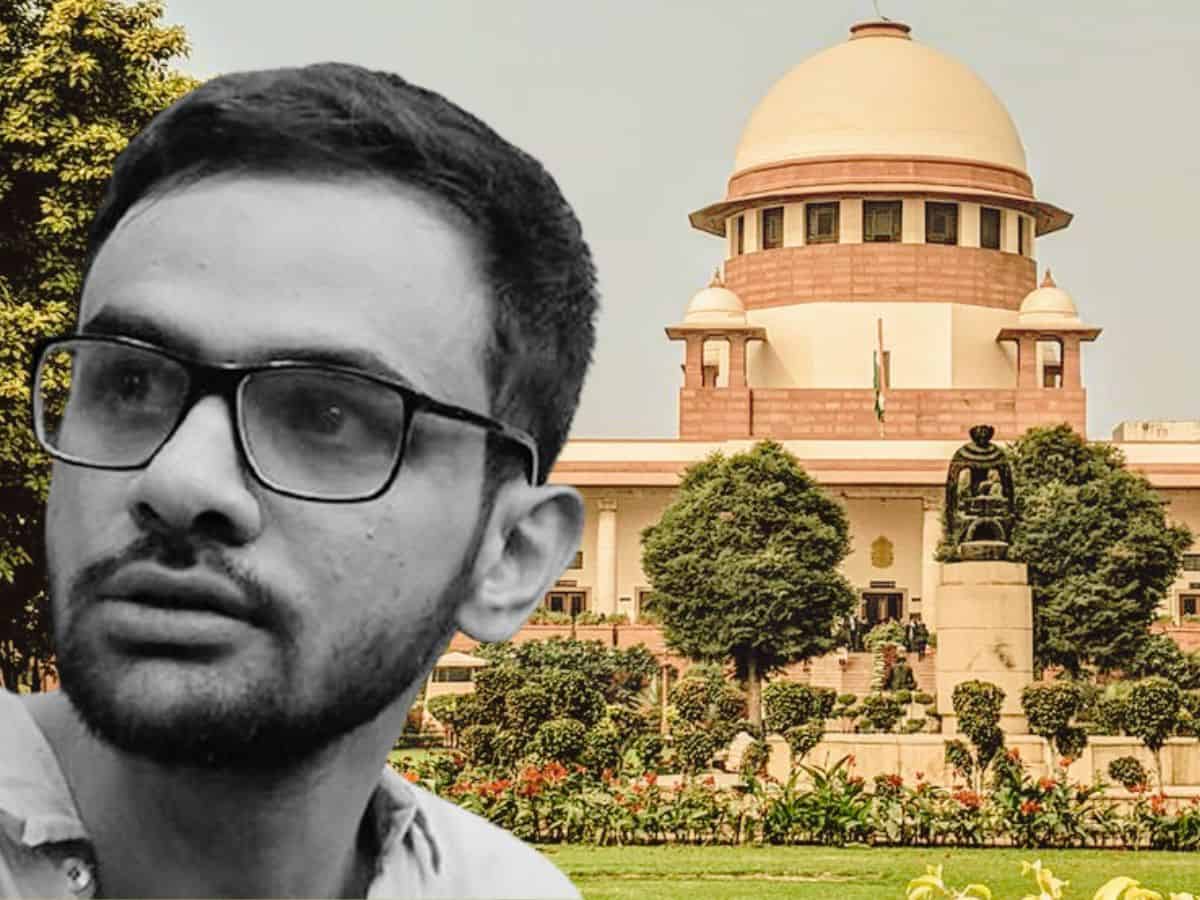
New Delhi: The Supreme Court on Tuesday issued notice to the Centre on a plea filed by student activist Umar Khalid challenging the provisions of the stringent Unlawful Activities Prevention Act (UAPA).
A bench of Justices Aniruddha Bose and Bela M Trivedi called for response of the Centre and others on the plea instituted by Khalid – who is behind the bars under the anti-terror law in connection with the Delhi riots’ “larger conspiracy” case.
The bench said that it will hear the batch of petitions challenging the constitutionality of the UAPA along with the bail plea filed by Khalid on November 22.
Khalid has instituted a special leave petition before apex court against a decision of the Delhi High Court denying him bail last year.
In the previous hearing, the top court had tagged the writ petition filed under Article 32 of the Constitution by the former JNU scholar with other existing petitions challenging UAPA. Khalid has been behind bars for more than three years in connection with the Delhi riots larger conspiracy case. He is facing charges under the Unlawful Activities (Prevention) Act for his alleged involvement in the larger conspiracy for Delhi communal violence that broke out in February 2020.
Why Umar Khalid:
An article by The Wire written in 2020 states, “Picking on Khalid and others serves to represent anti-CAA protests as being purely led by Muslims, rather than acknowledge them as the broad, diverse India-wide phenomenon that they were, comprising of people from all faiths and in several regions. Once you portray a movement as mostly Muslim-led (and involving “radical” leftists), it becomes easier to repress it and prevents others from joining it.”
In his speech (available online) which the Delhi Police used against him, he says, “We will not answer violence with violence, anger with anger, if they spread hatred we will reply with love, if they use batons, we will fly the tricolor, if they fire bullets, we will hold aloft the Constitution, if they put us in jail, we will sing ‘Sare jahan se acha Hindustan hamara‘ and gladly head to prison – but we will not let you destroy this country.”
Thus, the Narendra Modi-led Central Government saw Khalid as a “symbol of resistance” for Muslims in a fast-emerging Hindutva land. He represented a young, fearless, educated, socially aware Indian Muslim, something that the saffron party has unfailingly worked against.



